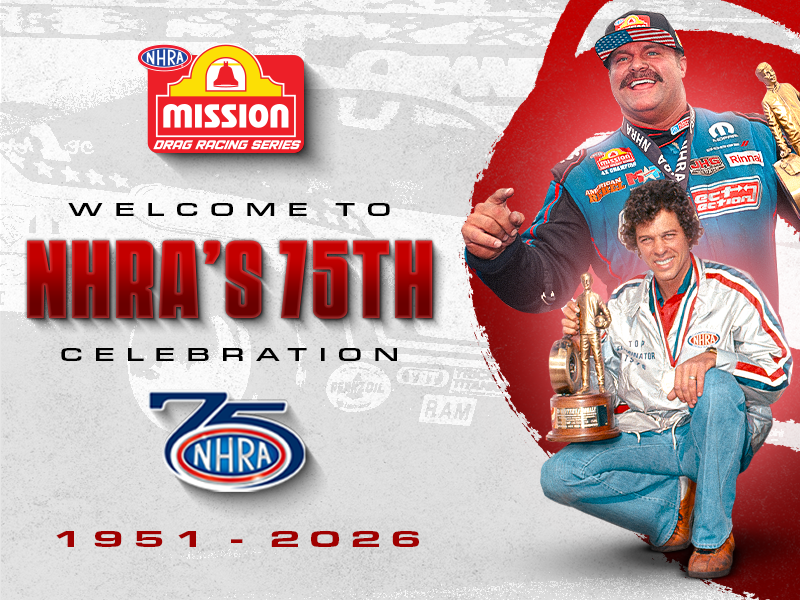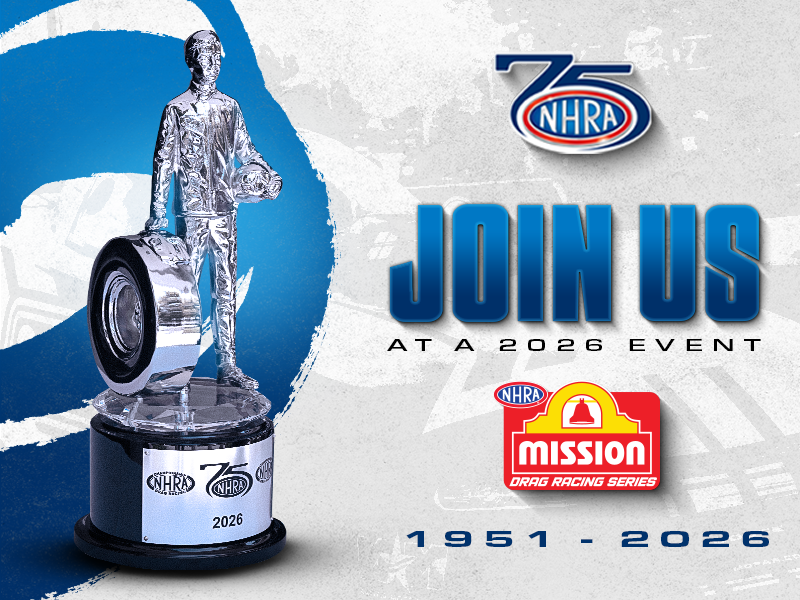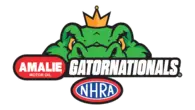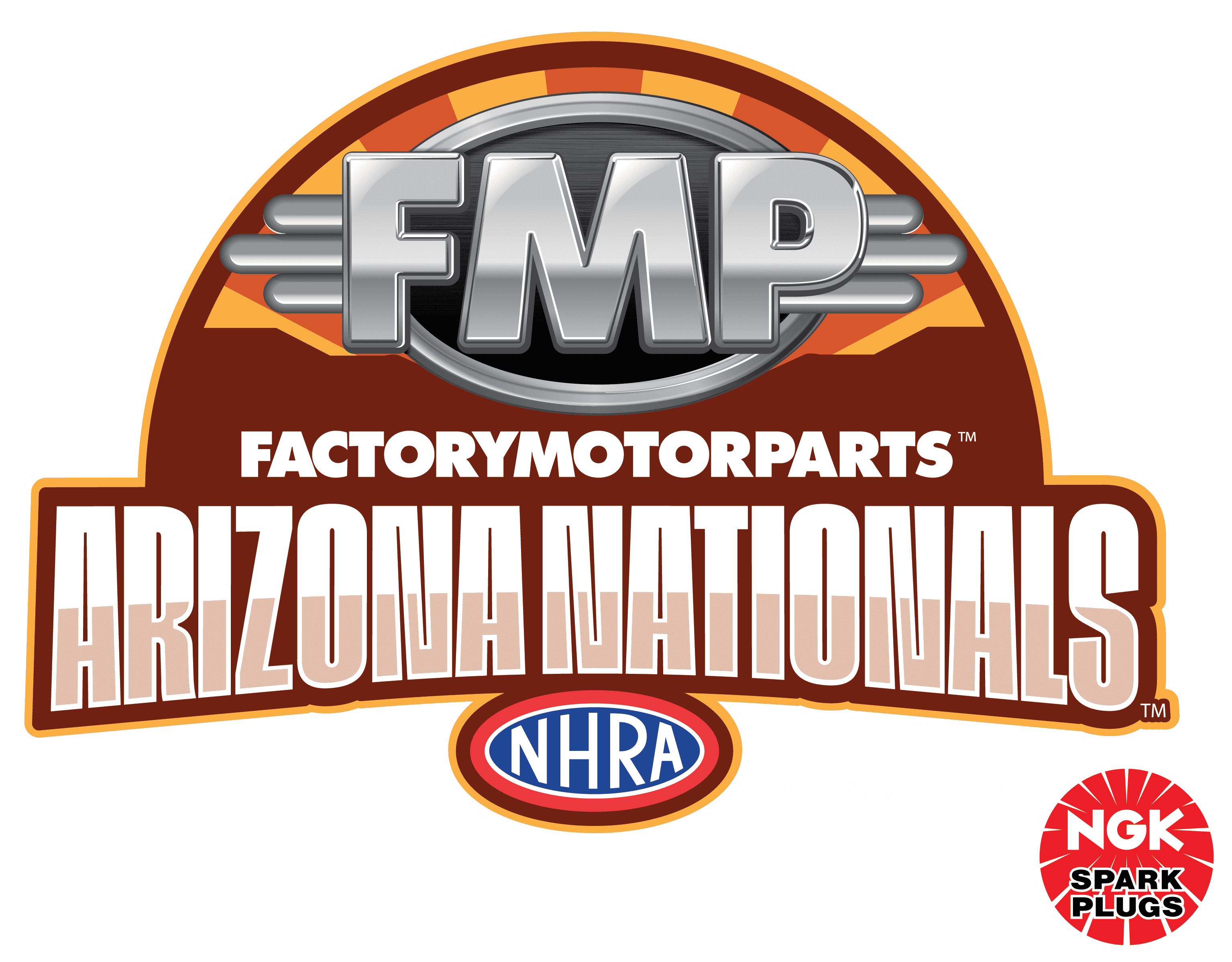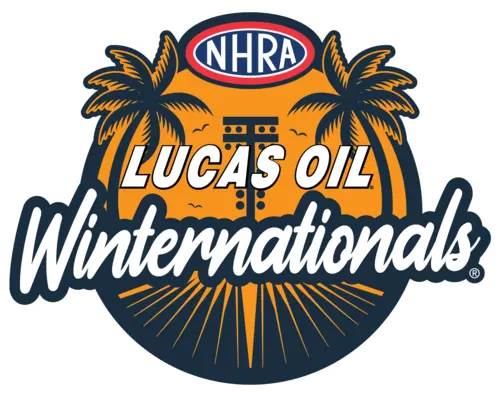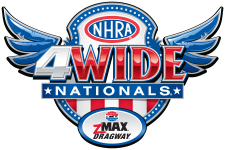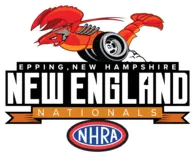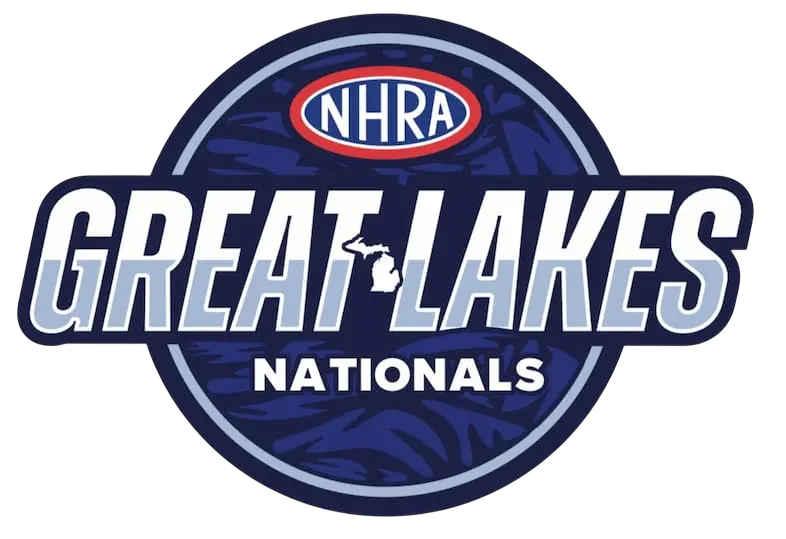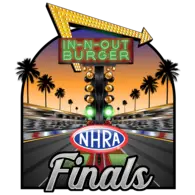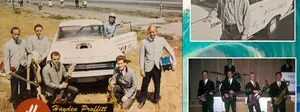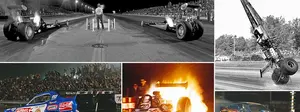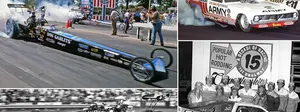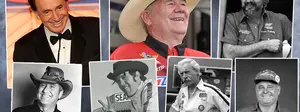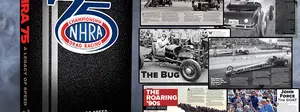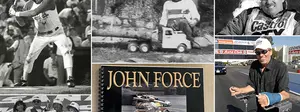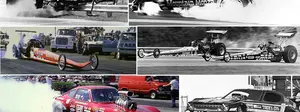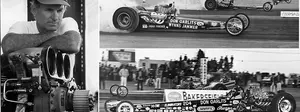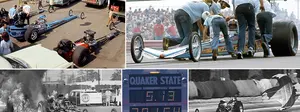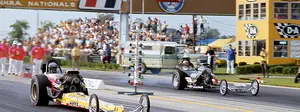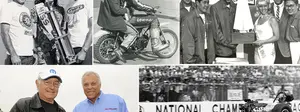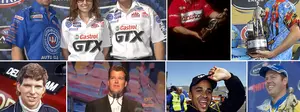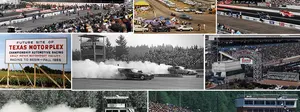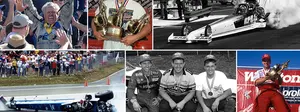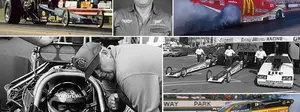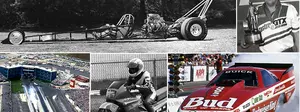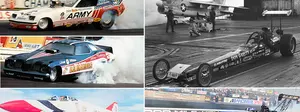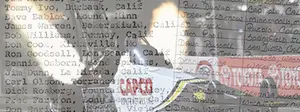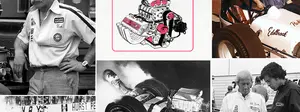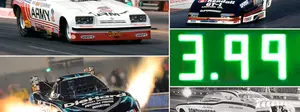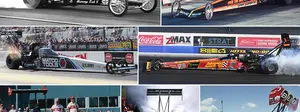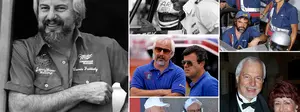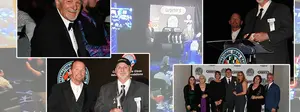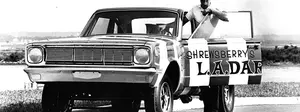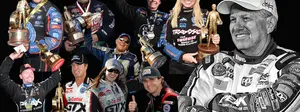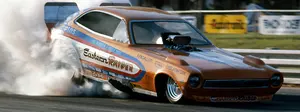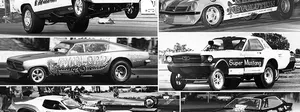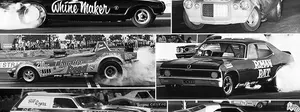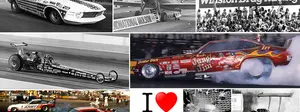Florida's first NHRA 'national event' was the Winter Nationals? Yep (sorta)
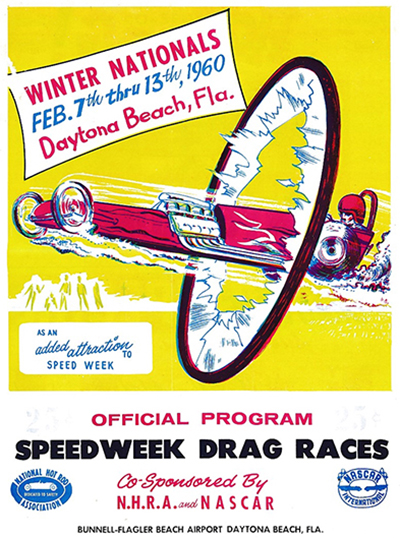
Any hardcore NHRA Drag Racing fan can probably tell you that NHRA debuted the famed Winternationals name in 1961 in Pomona, Calif., and the equally historic Gatornationals came to Gainesville, Fla., in 1970, but what fewer may know is that the Gatornationals was not the first NHRA “national event” in Florida and that the “Winter Nationals” (two words) name actually got its tryout in 1960, a year before it landed in sunny SoCal, in a collaborative event with NASCAR in Florida.
The event, held over seven chilly nights, Feb. 7-13, was the brainchild of NHRA founder Wally Parks and NASCAR throttle boss Bill France Sr., each using the event to advance their own agendas.
NHRA was riding high on the success of its famed National Championship Drags — shortened by many, including NHRA, to just “the Nationals” — which had debuted in 1955 and wandered around several centrally located Midwest venues. It was typically held in late summer, and NHRA was obviously looking to expand to other dates. Since February is still winter, it was an easy pivot to call the event “the Winter Nationals,” which, as we know, later became one word and also begat the equally seasonal Springnationals, Summernationals, and Fallnationals.
NASCAR, meanwhile, had a problem on its hands with illegal street racing surrounding its annual Daytona race as gearheads who couldn’t get onto the Daytona International Speedway, which had hosted the first Daytona 500 the year before, looked for a place to flex their muscles and found it on the streets and even on the old NASCAR beach course, creating a PR and civic nightmare. Four years earlier, a local newspaper reported that an actual "riot" involving thousands of racers had occurred on the streets there, and although the report was overblown and hot rodders themselves largely exonerated of the misdoings, it was still fresh in everyone's mind.
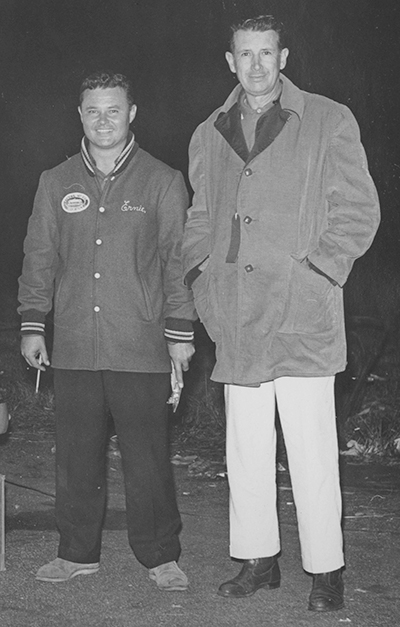
Parks turned to George “Ernie” Schorb, who had been NHRA’s boots on the ground in Florida, working with the fledgling South Florida Timing Association to grow the sport and stem the tide of illegal hot-rodding activities in the state. It was Schorb who later would coin the name “Winter Nationals” and who worked hand in hand with NASCAR Vice President Ed Otto to bring the event to fruition.
According to Florida drag racing historian (and occasional Insider column collaborator) Jim Hill, in a February 2001 article he wrote for us in National Dragster, Schorb had been involved with drag racing since 1949, and in 1951 had joined the Ramblers Road Club, of Miami, one of the founding clubs of the SFTA, “but soon found greater enjoyment in organizing, administrating, and promoting racing. His personality and ambition quickly placed him in contact with local political, military, and police officials eager to rid their streets of illegal ‘stop light drags.’ “
Schorb partnered with local businessman and sports-car racer Jack Horsley, who owned an independent insurance agency and other businesses. Horsley introduced Schorb to Congressman Dante Fascell, from the Miami-Dade County district, and got access to run events at places like the then-inactive Homestead Air Force Base, at a seldom-used public roadway in Miami-Dade County, and on the Amelia Earhart Airfield in Hialeah, which hosted the first Florida State Championships in 1954.

Schorb had first met Parks in 1957 when Parks was wheeling Hot Rod Magazine “Suddenly” Plymouth in speed trials on the beach in Daytona, just part of Parks’ mission to show the circle turners that “where there are hot rodders, there is know-how.” A year later, Schorb was hired by NHRA as its Business Manager, before being tapped to become the first Southeast Division Director, joining the original group that also included Ed Eaton (Eastern), Dale Ham (Southwest), Terrell Poage (Northwest), Bob Daniels (Midwest), and Bernie Partridge (Western).
Racing at the 1960 Winter Nationals took place at the Flagler-Bunnell Airport, less than a half-hour north of the speedway and, to its credit, NASCAR let the drag racers handle the drag racing. Holes were drilled alongside the runway for light and power poles, and portable generators supplied the power. Lights for the dragstrip itself came from a pair of World War II surplus anti-aircraft searchlights aimed down each lane.

SFTA supplied the Chrondek Dual-Lane timing system, PA system, and communications equipment, and members from many SFTA clubs lent their expertise to get things running, but Parks also tapped Eaton, well known for his organizational skills, to help make sure things ran as Parks expected them.
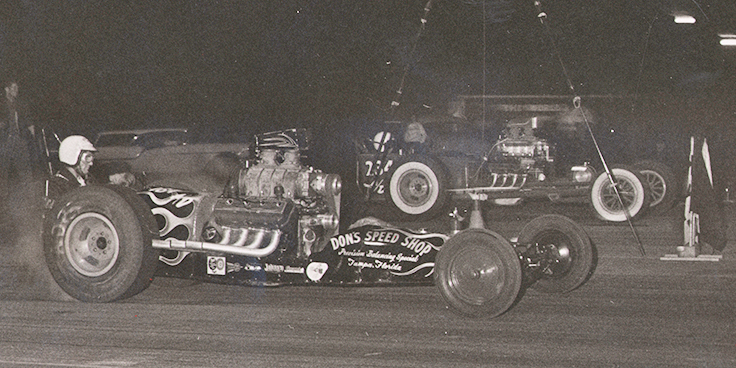
Car count on each of the seven nights averaged about 200, with the event drawing racers from 20 states, including, of course, Florida, which was well represented by Don Garlits, who set Top Speed at 165 mph in brother Ed Garlits’ gas-burning, supercharged Chrysler-powered dragster (the NHRA “fuel ban” still being in effect), humorously dubbed Swamp Rat Too-A and a car in which Ed had won the 1959 Florida state championship.
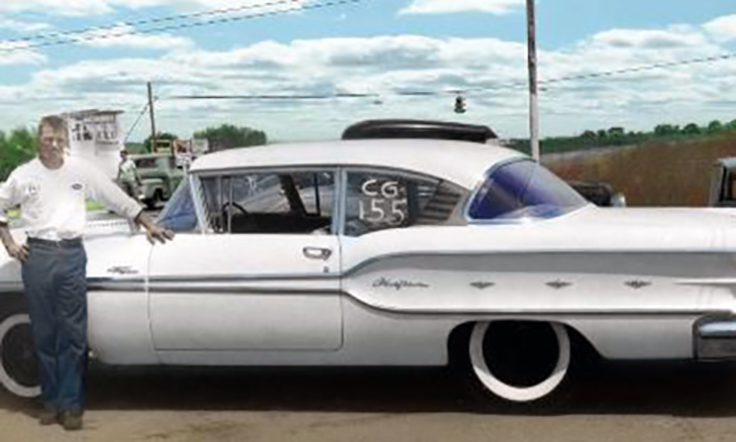
Arnie “the Farmer” Beswick (above) won Stock in his 389-powered, four-speed ’60 Pontiac Catalina, defeating 1959 Nationals winner Harold Ramsey, while 1970s East Coast Funny Car standout Arnie Swensen (of future Swensen & Lani fame) brought his wild AA/Altered Buick-powered ‘30 Ford pickup down from New Jersey and won Middle Eliminator honors.
Other notable and future stars in attendance were Connie Kalitta, Shirl Greer, George “Smarty Pants” Weiler, Hayden Proffitt, Ted Cyr, and Jim Nelson. Joe Jacono, whose Rolling Stoned Funny Cars would become a Northeast mainstay, was competing in Florida in a Buick-powered A/Modified Roadster.
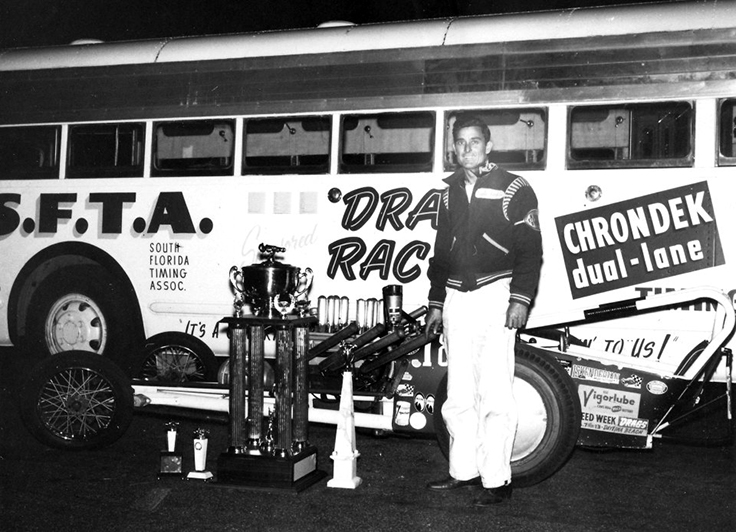
Jacono had a lot of success at the event, but not as much as Lewis Carden (above), who dominated racing on most of the seven nights with his injected, small-block Chevy-powered B/Dragster and was named the overall Top Eliminator winner on the basis of that continuing success.
Garlits fumed about this decision as his and Ed’s 160-plus-mph dragster was light years ahead of Carden’s in performance (Carden’s best speed was just 141 mph), and even though the Garlitses did not win as many nights as Carden did, they thought they should have been named the winner.
This was the event where Garlits famously tangled with Parks, who, according to lore, ended up spread-eagled on the hood of Garlits’ Art Malone-piloted '53 Cadillac push vehicle. This happened on the opening night when Garlits and Carden squared off for the final.
Here’s Garlits’ account, as printed in his book, Don Garlits and His Cars:
“Just as the starter began to pull the flag, Carden ‘jumped’ and the starter waved the red flag indicating no start, we'll try again. We all got three starts in those days and it looked like Carden was going to use them all. My dragster had moved slightly across the starting line so, as was customary then, I drove a few feet down the track and turned around and drove back to the staging lanes for the next start.
“However Carden had shut his engine off, very unusual as we usually kept them running for the next start. As I shut off my engine, I could hear the announcer proclaiming over the PA system that I had been disqualified for ‘crossing the centerline.’ What bullshit,’ I thought; the race was over when the red flag waved in the air. The announcer said Carden would single for the TE of the evening.
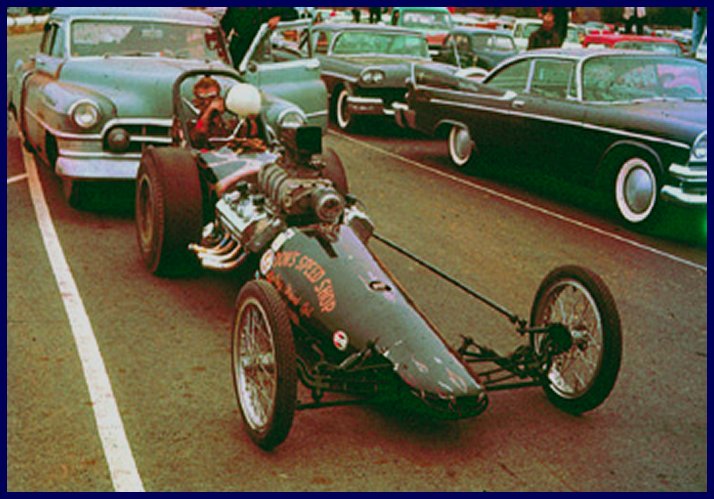
Garlits in the staging lanes with the fabled Caddy push car behind him
“Just then, who should stick his head in the cockpit of the Swamp Rat Too but Wally Parks himself and he said, ‘Don, you are disqualified and Carden will single.’ As Wally's words came out of his mouth, I could also hear Carden's engine come to life as the announcer proclaimed he would single for the evening's top prize. I thought to myself, ‘Like hell he will,’ and I signaled with my right hand to Art who had the motor still running in the Caddy to push start me. Art didn't know who Wally Parks was, nor did he even care. All Art knew was that there was a race we wanted to win and to win you had to get to the line.
“As the Caddy pushed the dragster a few feet to start, Wally had no choice but to grab the big Cadillac hood ornament and pick up his feet or get run over. Wally chose the former and went for one of the wildest rides of his life. The Swamp Rat started real easy and I shot to the line in time to see Carden already about 100 feet downcourse. I stood on the throttle, the tires smoked real hard as I crossed the starting line at about 50 miles per hour, and about the eighth-mile I gathered up Carden and waved ‘bye’ to him as I blew him away! The announcer said, ‘Garlits wins but had been disqualified earlier,’ but I didn't care.”
Garlits, who later joked that he could hear Parks’ coattails flapping in the wind behind his cockpit, won Top Eliminator the next two nights and thought that Top Speed was the most coveted award for Speedweek and that all of that should have earned them the overall title. Parks obviously disagreed, and it was just the first of many dust-ups that two of drag racing’s most powerful personalities had over the years. For the record, Parks always denied that the whole "jumping on the hood" story ever happened.

From left, Wally Parks, Ernie Schorb, NASCAR promoter Ed Otto, event winner Lewis Carden, and the event's queen, Shelby Jean Carwell, celebrated the event’s success.
Due to a weather-influenced small turnout (about 8,000 fans over the seven days, at just $1 a pop per admission), the event didn't even break even (a net loss of $2,361, split between NHRA and NASCAR), and while NASCAR could afford that, it was a thorn in Parks' paw at a time when NHRA's finances needed tending to, and both parties decided that a repeat was not in the cards. Under Otto’s guidance, NASCAR continued to host a rudimentary drag racing division for another decade but, of course, was focused on its core business, and NHRA took the Winternationals name (changing it to one word to divorce itself from the Florida event) and put it on the new event at Pomona Raceway, which had been a home base for West Coast growth and the NHRA template for almost a decade.
Although NHRA Division 2 events took place in Florida as early as 1964, at Masters Field outside of Miami — Garlits’ right-hand man, Connie Swingle famously doubled there, winning Top Fuel in one of Garlits’ cars and Top Gas in Bob Hamilton’s ride — as well as at West Palm Beach Raceway, Buckingham Drag Strip in Fort Myers, Miami-Hollywood Speedway, at the Pensacola Naval Air Base, and, in 1969 at Gainesville Raceway, Florida didn’t get its first real NHRA national event until the 1970 “Super Season,” when three races were added that year — the Gatornationals joining the Summernationals in York, Pa., and the Supernationals in Ontario, Calif. — almost doubling the dance card from four to seven events.
Next week the Gatornationals fire to life again for its 55th edition, continuing a legacy of championship drag racing in the state that dates back more than 60 years. I’ll be there … hope to see some of you there, too!
Phil Burgess can be reached at pburgess@nhra.com
Hundreds of more articles like this can be found in the DRAGSTER INSIDER COLUMN ARCHIVE
Or try the Random Dragster Insider story generator



